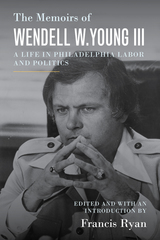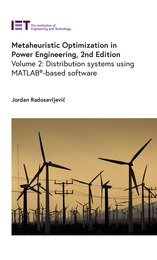7 start with N start with N
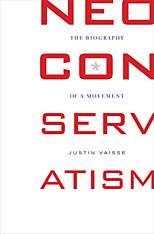
Neoconservatism has undergone a transformation that has made a clear identity almost impossible to capture. The Republican foreign policy operatives of the George W. Bush era seem far removed from the early liberal intellectuals who focused on domestic issues. Justin Vaïsse offers the first comprehensive history of neoconservatism, exploring the connections between a changing and multifaceted school of thought, a loose network of thinkers and activists, and American political life in turbulent times.
In an insightful portrait of the neoconservatives and their impact on public life, Vaïsse frames the movement in three distinct ages: the New York intellectuals who reacted against the 1960s leftists; the “Scoop Jackson Democrats,” who tried to preserve a mix of hawkish anticommunism abroad and social progress at home but failed to recapture the soul of the Democratic Party; and the “Neocons” of the 1990s and 2000s, who are no longer either liberals or Democrats. He covers neglected figures of this history such as Pat Moynihan, Eugene Rostow, Lane Kirkland, and Bayard Rustin, and offers new historical insight into two largely overlooked organizations, the Coalition for a Democratic Majority and the Committee on the Present Danger. He illuminates core developments, including the split of liberalism in the 1960s, and the shifting relationship between partisan affiliation and foreign policy positions.
Vaïsse gives neoconservatism its due as a complex movement and predicts it will remain an influential force in the American political landscape.
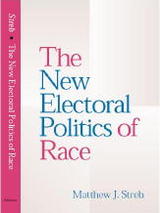
Historically, race has always been at the heart of American politics, and southern politics more specifically. Southern elections revolved almost entirely around racial issues during the 1950s and 1960s as debates raged over integration of schools, voting rights, and busing patterns. The election of George Wallace as governor of Alabama in 1962 underscored the electoral power of ruthless racial rhetoric, not only in Alabama, but throughout the South and the entire country. Almost 40 years later, segregation is no longer legal, tensions between blacks and whites have lessened, and the influx of large numbers of African Americans into the electorate has forced politicians to court black voters.
Matthew Streb finds, however, that although extreme racial rhetoric has disappeared from the modern campaign trail, voters are still polarized along racial lines. By comparing gubernatorial campaigns in four southern and three northern states-Alabama, Georgia, Arkansas, Virginia, Ohio, Iowa, and Massachusetts-the author examines how candidates use, or fail to use, race in their campaign strategies. He demonstrates that race indeed remains a significant factor in American elections, couched in alternative issues, such as affirmative action, profiling, and social welfare.
Streb's analysis of the appeal by politicians for the elite vote and the public vote reveals that class has replaced race as a definitive issue in American politics. This book will, therefore, be important not only to academic libraries and students and scholars of political science, southern history, and civil rights, but also to pollsters, campaign strategists, and state political party officials.


New Jersey Fan Club: Artists and Writers Celebrate the Garden State is an eclectic anthology featuring personal essays, interviews, and comics from a broad group of established and emerging writers and artists who have something to say about New Jersey. It offers a multifaceted look at the state’s history and significance, told through narrative nonfiction, photographs, and illustrations.
New Jersey Fan Club is edited by Kerri Sullivan, founder of the popular Instagram account Jersey Collective (@jerseycollective), which features weekly takeovers by different New Jerseyans. This book functions the same way: it gives dozens of different contributors the chance to share what New Jersey looks like to them. The book is an exploration of how the same locale can shape people in different ways, and it will inspire readers to look at the Garden State with fresh eyes and appreciate its bounty of beautiful places and vibrant spaces.

A reappraisal of Ecce Homo and The Antichrist within Nietzsche’s oeuvre.
Nietzsche's Legacy takes on the most challenging and misunderstood works in Nietzsche’s oeuvre to illuminate his view of what a philosopher is and what constitutes a philosophic life. Interpreting Ecce Homo and The Antichrist as twin books meant to replace the abandoned Will to Power project, Heinrich Meier recovers them from the stigma of Nietzsche’s late mental collapse, showing that these works are, above all, a lucid self-assessment. The carefully written pair contains both the highest affirmation—the Yes of the “revaluation of all values”—and the most resolute negation—the No to Christianity. How the Yes and the No go together, how the relation between nature and politics is to be determined, how Nietzsche’s intention is governing the political-philosophical double-face: this is the subject of Nietzsche’s Legacy, which opens up a new understanding of Nietzsche’s philosophy as a whole.
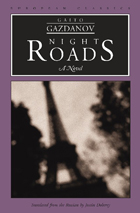
Drawing together episodes of rich atmosphere, this novel is as deep and brooding as the Paris nights that serve as its backdrop. Russian writer Gaito Gazdanov arrived in Paris, as so many did, between the wars and would go on, with this fourth novel, to give readers a crisp rendering of a living city changing beneath its people’s feet. Night Roads is loosely based on the author’s experiences as a cab driver in those disorienting, often brutal years, and the narrator moves from episode to episode, holding court with many but sharing his mind with only a few. His companions are drawn straight out of the Parisian past: the legendary courtesan Jeanne Raldi, now in her later days, and an alcoholic philosopher who goes by the name of Plato. Along the way, the driver picks up other characters, such as the dull thinker who takes on the question of the meaning of life only to be driven insane. The dark humor of that young man’s failure against the narrator’s authentic, personal explorations of the same subject is captured in this first English translation. With his trademark émigré eye, Gazdanov pairs humor with cruelty, sharpening the bite of both.
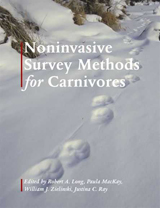
Presented in a straightforward and readable style, Noninvasive Survey Methods for Carnivores is a comprehensive guide for wildlife researchers who seek to conduct carnivore surveys using the most up-to-date scientific approaches. Twenty-five experts from throughout North America discuss strategies for implementing surveys across a broad range of habitats, providing input on survey design, sample collection, DNA and endocrine analyses, and data analysis. Photographs from the field, line drawings, and detailed case studies further illustrate on-the-ground application of the survey methods discussed.
Coupled with cutting-edge laboratory and statistical techniques, which are also described in the book, noninvasive survey methods are effi cient and effective tools for sampling carnivore populations. Noninvasive Survey Methods for Carnivores allows practitioners to carefully evaluate a diversity of detection methods and to develop protocols specific to their survey objectives, study area, and species of interest. It is an essential resource for anyone interested in the study of carnivores, from scientists engaged in primary research to agencies or organizations requiring carnivore detection data to develop management or conservation plans.
READERS
Browse our collection.
PUBLISHERS
See BiblioVault's publisher services.
STUDENT SERVICES
Files for college accessibility offices.
UChicago Accessibility Resources
home | accessibility | search | about | contact us
BiblioVault ® 2001 - 2024
The University of Chicago Press


